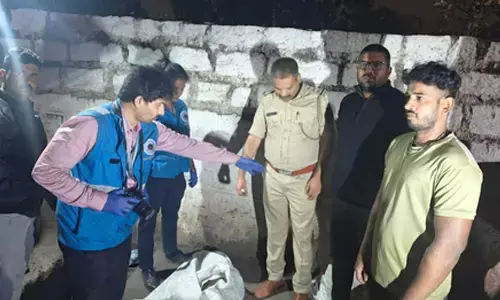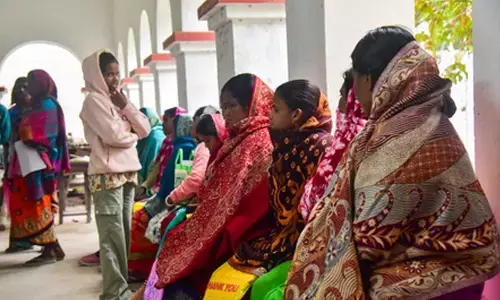Radiologist crunch in hosps takes toll on gynaecologists

Gynecologists are already taking up the charge of out-patients, ante natal check-ups and normal scanning procedures and now the TIFA scans are said to be adding to their burden
Hyderabad: Shortage of radiologists is forcing gynecologists in government hospitals to conduct TIFA (Targeted Imaging for Fetal Anomalies) scans, besides doing their regular duties. Doctors have urged the government to bring in experts for executing the scanning procedures.
The Telangana government on November 26 inaugurated 57 TIFA (Targeted Imaging for Fetal Anomalies) scanning machines in 44 government hospitals with an expenditure of Rs 20 crore. This was aimed to not just decrease the financial burden, by Rs 2,000 to Rs 3,000 per scan in private hospitals, but also to benefit around 20,000 pregnant women in the State.
However, due to a staff shortage, including that of radiologists, has brought the problem back to square one. Though the authorities state that radiologists and gynecologists were trained to handle this machine, doctors have said that the two-day training programme is insufficient. A government doctor said that the training should have been extended for radiologists because they would come to know about the real-time problems while taking up the scans.
Gynecologists are already taking up the charge of out-patients, ante natal check-ups and normal scanning procedures and now the TIFA scans are said to be adding to their burden. "Generally it takes about 30 to 40 minutes to complete the scan and if gynecologists are asked to do the job, it will be difficult for them to handle the patients, who come in large numbers," said a doctor who also added that on an average close to 20,000 women undergo this test during the 18th to 22nd week of pregnancy.
With these issues, gynecologists want the government to recruit radiologists and also take up orientation classes for the staff so that the teething problems can be solved. The authorities, however, state that the problem has been solved in most of the hospitals and as per a senior official, there is a Programme Monitoring Unit (PMU) in the hospitals, which conducts routinal checks and repairs with the company representatives, so that if there are any doubts they can be contacted.
















